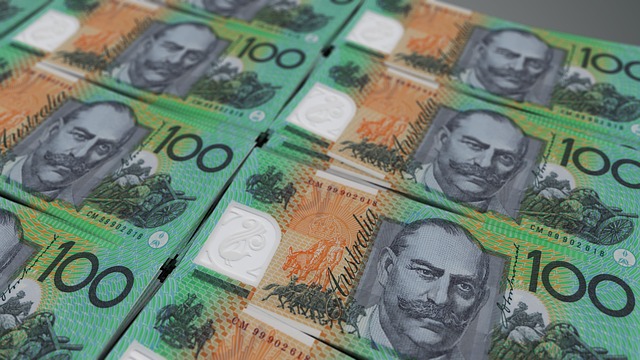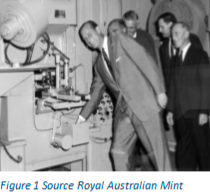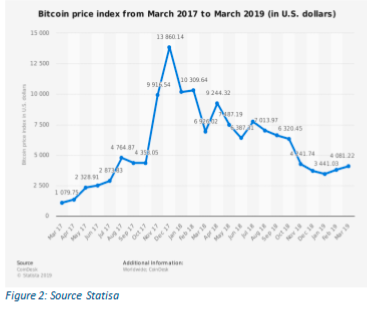What is the Job of a Dollar?
Share

Have you ever looked at your change at the end of a day and thought “What’s the point?”
These little bits of metal we carry around don’t amount to much. A dollar, for example, you can’t do much with it… unless it is hanging around with a bunch of its friends. On its own, it’s not even enough to buy a coffee!
Once upon a time money was made of precious metal that had intrinsic value of its own and eventually lead to the creation of the gold standard which controlled monetary policy around the world 1819 to 1914.
However, now money has very little intrinsic value of its own. It is based on alloys of base metals that carry a face value set by the state and an extrinsic value based on money markets.
So what is money then?
The economic definition of money is a medium of exchange, store of value, and unit of account.
Is it though?
The Australian Dollar as we know it today was released in 1984, one year after the dollar was floated to allow its value to fluctuate with supply and demand of the market, and it is reported that demand is decreasing.
If the medium of exchange is no longer in demand, what is its point?
One could argue that money has other purposes. In a time not so distant we would collect currency as a souvenir of travel, the iconography of the local currency evocative of the culture of distant places
There was also a time when children received their pocket money in cash, just as their parents received wages. The physicality of the payment encouraging independent learning in mathematics, and financial literacy
Similarly, there is security in money, in having physical cash especially in times of emergency, or for a rainy day.
Read Being an “ethical business” – what does that even mean?
But what is the job of a Dollar in a world with evolving technologies and a time-poor populace?
The local currency market is a duopoly, you either use or you don’t. You can’t shop around for a better deal… or can you?
This is the essence of the whole debate. Similar to the privatisation of utilities, the market for currency usage has shifted toward something more akin to a competitive market due to improved technology.
Many have already voted with their feet, the uptake of alternative payment options is on the rise. However, the rise of money as data e.g. EFT, Pay Wave, Apple pay, Google pay, Amazon pay, Samsung pay, Bitcoin and other cryptocurrencies is a more recent phenomenon.
Even Sovereign nations have jumped on the bandwagon, with 70% of Central Banks conducting feasibility studies into issuing digital currencies.
However, one of the key factors that give you and economic security are the barriers of entry that exist in duopolies… not just anyone can make a dollar!
Monetary policy ensures that we don’t experience the hyperinflation seen in the Weimer Republic, or more recently Zimbabwe which renders a currency worthless within its own borders and on the currency market. This causes currency displacement or dollarization, where foreign currencies are used for trading rather than local currency, further exacerbating the challenges faced by low-income earners or fixed income recipients.
 The newly arisen competitive market for currency usage has very few barriers of entry, most phone manufacturers have some kind of payment app, this lines up against cryptocurrencies, and cards which are all in the hands of commercial entities. The bitcoin market alone has fluctuated widely in recent years. This volatility hampers its adoption more widely due to lack of trust in the broader community.
The newly arisen competitive market for currency usage has very few barriers of entry, most phone manufacturers have some kind of payment app, this lines up against cryptocurrencies, and cards which are all in the hands of commercial entities. The bitcoin market alone has fluctuated widely in recent years. This volatility hampers its adoption more widely due to lack of trust in the broader community.
So… What is the job of a dollar?
This isn’t a one and done kind of answer, we looked at just a few of the complexities around this question. We examined the concepts of semiotics, hermeneutics, and phenomenology; the philosophy of meaning and the human experience to try and tease out a solution.
However, the truth is more fundamental and personal than that. It lies somewhere within you and your relationship with not only money, but the experiences you have had its attributes, and the symbolism it holds for you. It lies within the collective society, and how money translates to national identity.
Maybe money does have an intrinsic value after all?
In a world where the tooth fairy still exchanges bits of metal for a baby tooth, where a nod and smile is the acknowledgment of the gift of music from a talented student in exchange for the note fluttering into their violin case, and where you can share your good fortune with those who lost theirs to the sound of a ching against other coins in a cup, money is still King

















Follow us on social media